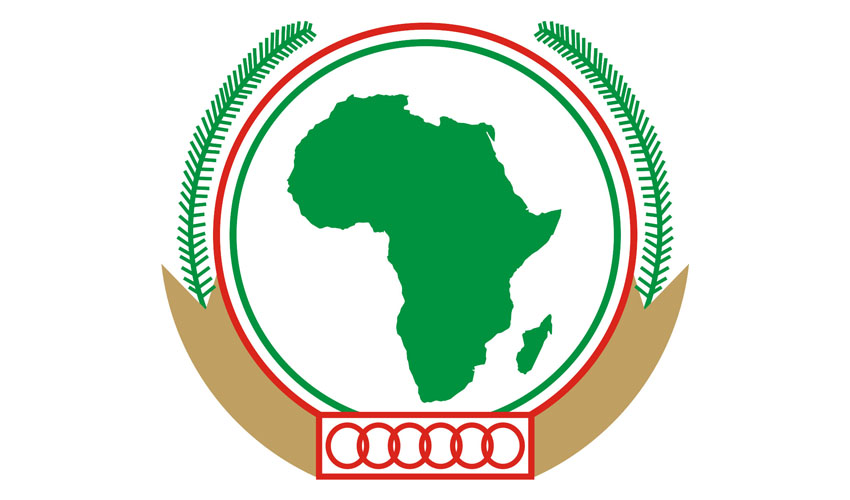African Standby Force@20: Time for operationalisation
The African Standby Force (ASF), established by the African Union (AU) to implement the continent’s right to intervene in situations that require military force, just clocked 20 years. Conceived as an international, continental and multidisciplinary peacekeeping force with military, police and civilian contingents, its troops were to be stationed in their countries of origin and […]

african standby force (asf)
The African Standby Force (ASF), established by the African Union (AU) to implement the continent’s right to intervene in situations that require military force, just clocked 20 years.
Conceived as an international, continental and multidisciplinary peacekeeping force with military, police and civilian contingents, its troops were to be stationed in their countries of origin and ready for rapid deployment under the AU. Operationally, five regional brigade-sized standby forces were to be stationed, each in east, west, central, north and southern Africa. Each brigade was envisaged to have about 5,000 members for an overall strength of 25,000 personnel.
The third meeting of African Chiefs of Defence Staff (ACDS) held in Addis-Ababa, Ethiopia, May 15 to 16, 2003, kicked off the establishment of the military body when it adopted “The Policy Framework Document on the Establishment of the African Standby Force (ASF) and of the Military Staff Committee (MSC).”
The AU summit held in 2003 in Maputo, Mozambique ratified its establishment, while the Peace and Security Council Protocol created the African Standby Force (Art 13) and was signed and adopted by member-states in 2004. In 2013, the African Capacity for Immediate Response to Crisis (ACIRC) was set up as a temporary rapid intervention force until the ASF was ready. In the end, ACIRC too, was never deployed. After lengthy discussions about African peace support operations, the AU decided in 2019 to integrate ACIRC into the ASF framework.
- Seek dialogue, COAS urges armed groups
- Police Affairs minister, IGP pledge to eradicate kidnappers, bandits in Nasarawa
However, the standby force was declared fully operational in 2016, and in 2017, the force’s capabilities were adopted in deploying an Economic Community of West African States (ECOWAS) mission to The Gambia, while the Southern African Development Community (SADC) deployed a mission to Lesotho. More recently, the SADC deployed missions to Mozambique in 2021 and to the Democratic Republic of Congo (DRC) in 2024. Likewise, the East African Community deployed a regional force to restore stability in eastern DRC in 2022. Other similar arrangements include the Joint Force of the Group of Five for the Sahel, the Multinational Joint Task Force (MNJTF) against Boko Haram in the Lake Chad Basin, and the AU Regional Task Force against the Lord’s Resistance Army in Uganda.
But none of the deployments was in line with the AU’s ASF mandating processes, deployment timelines and the six conflict and mission scenarios. In fact, mostly, it was only after the deployment that the AU endorsed the missions. Altogether, in the 20 years of ASF, the eight African regional economic communities and other institutions have deployed 27 peace operations. But neither the AU PSC nor member states used the standby arrangements as originally envisaged. This is because right from inception, the ASF was bedeviled by challenges, including the changing nature of the security environment, inadequate political will, weak institutional framework and financial status of its members.
It is unfortunate that in a continental landscape dominated by violent extremism and deadly transnational armed groups and two decades after its formal establishment, the ASF is yet to be operationalised. The continent is still without a rapid response capability.
Meanwhile, the ASF remains a good idea. But like all things African, it was great in conception and rhetoric and dismal in implementation, joining the graveyard of many worthy initiatives in the continent. It is unfortunate that 20 years after, the dream of its founding fathers is yet to materialise.
The relevance and viability of the ASF cannot be overemphasized. We at Daily Trust therefore call on the AU to ensure that the ASF idea comes to fruition instead of the current ad hoc troop coalitions, which have become the norm in the continent. Indeed, the functional regional arrangements are only filling the gaps left by the non-functionality of the AU’s peace and security force.
We also call on African nations to commit necessary resources to operationalise the ASF. They should stop invoking the principle of sovereignty in domestic affairs in rejecting AU interventions.
In addition, as part of bolder actions towards curbing the continent’s current security threats, all governments, regional blocs and the AU Commission should urgently work together and expedite the operationalize the ASF.
We, therefore, call on African nations to quickly work on operationalising the force, especially as the unipolar world today does not favour the continent in terms of growth and stability, which explains the myriad of wars and crises across the continent.
We implore AU leaders to intervene, as failure to institute an effective standby force is the reason there is proliferation of private armies and mercenaries across the continent. It should not be allowed to continue.
